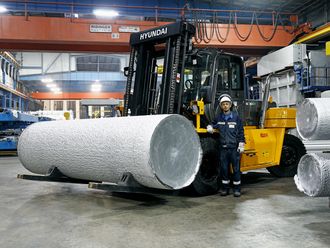
The employee-employer relationship has fundamentally changed as highlighted by recent terms such as the Great Resignation, the Great Reshuffle or the Great Renegotiation, which have dominated news headlines. Certain employee populations have become accustomed to a flexible working mode; Mercer’s 2022 Global Talent Trends data shows that 64 per cent of employees will only join a company if they provide a remote- or hybrid work model.
This shows that employee expectations from their employer have irrevocably changed. It means we live in a world with a significant gap in the agendas of the individual and companies. Employers must act now to retain and attract key talent. So, what can companies do to address the direct implications of the Great Resignation?
Understanding that the employee-employer dynamic has changed is the first step in providing an attractive working environment. Using the lessons learned from the pandemic and redefining how companies interact with their workforce is key to being a ‘relatable organization’ or, in other words, an organization that makes an effort to be more open, listens carefully to employee issues, uses data to guide action, and takes a bold stance on issues that matter most to its people.
Across the globe, organizations are examining their business through the lens of empathy, intent and societal purpose, which, importantly, must be balanced with the economics of its operations. Based on our data, there are five key drivers that can help your organization become more relatable, and address this fundamental shift.
Reset for relevance
Resetting firstly recognizes that now there is an opportunity to build with a refreshed lens, and design a new work operating model that is built on listening, learning and adapting to address the unmet needs of employees. Organizations that lead by example in terms of their vision, purpose and business strategy will better relate to their employees.
Work in partnership
Our study shows that people no longer want to work for a company, they want to work with a company. This model is focused on reassessing the employee-employer relationship by prioritizing ‘partnering’ over ‘leading’ employees.
Employers that work with their employees to create equitable, transparent and rewarding relationships, and engage in dialogue to define the future of work, whether in terms of pay, hours and work environment, often see enhanced employee commitment and engagement.
Deliver on total-well being
Employees today are more burnt out and stressed than ever before, and this has a direct impact on their emotional, social, and physical health. One in two companies today are introducing mental or emotional well-being strategies, with 38 per cent of executives finding that it delivers measurable returns. It is clear that companies that invest in more people-led initiatives are showcasing their commitment to supporting employee health and acting as compassionate organizations. This, in turn, solidifies employee trust.
Build for employability
Companies that rethink how work is done and map out required future skills will position itself for continued growth. A relatable organization also understands that employees want to grow their skillset; employers that create clear career progression and training plans, and provide opportunities for employees to deploy their newfound skills in the job, will support longevity and loyalty.
Harness collective energy
Energy levels have also dropped significantly, brought about by changes employees have experienced over the last two years. So how do we bring the energy back to the workplace? Companies need to ensure that work-life balance is an immediate priority, an open line of communication between HR is established, and employees are paid fairly and in line with recent market developments.
However, some argue that the Great Resignation is a temporary blip as we adjust after lockdowns, and we are on the precipice of a return to the old normal – most recently seen in Elon Musk’s company-wide letter that sparked many conversations on the future of work.
What is true, however, is that we are feeling a seismic shift in the employee-employer relationship and a return to the old normal is hard to foresee. At Mercer, we believe regardless of where organizations stand on this debate, the pandemic has been a great opportunity to hit reset and reexamine entrenched values, and strategies, and take an important step towards creating a positive work culture.









